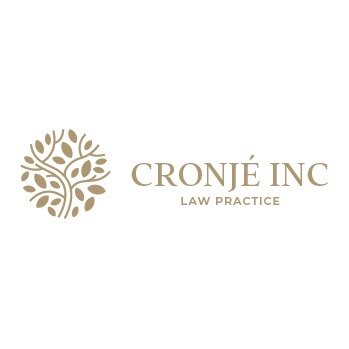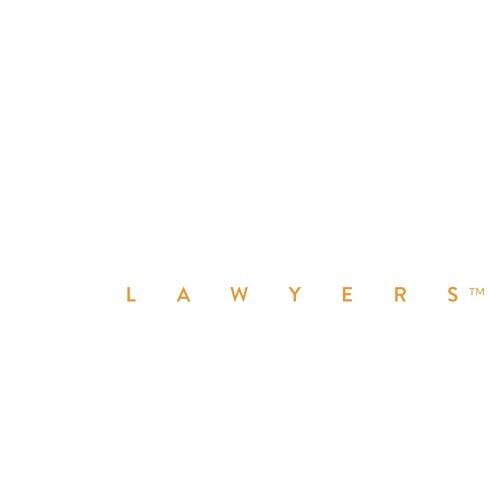Best Energy Regulatory Law Lawyers in Windhoek
Share your needs with us, get contacted by law firms.
Free. Takes 2 min.
List of the best lawyers in Windhoek, Namibia
About Energy Regulatory Law in Windhoek, Namibia
Energy Regulatory Law in Windhoek, Namibia refers to the legal framework that governs the generation, transmission, distribution, and regulation of energy resources, including electricity and renewable energy such as wind and solar. Namibia’s capital, Windhoek, acts as the economic and regulatory hub where policies are enforced and regulatory matters are often addressed. The field covers compliance with national laws, sector-specific regulations, licensing requirements, tariff approvals, renewable energy initiatives, and environmental considerations relevant to the energy sector. As Namibia increasingly expands its renewable energy infrastructure, regulatory oversight and legal compliance play a crucial role in safeguarding public interest, investors, and consumers alike.
Why You May Need a Lawyer
Obtaining legal assistance in Energy Regulatory Law can help in several situations:
- Energy Project Development: Developers or investors may require guidance on licensing, permits, and regulatory approvals for new energy projects.
- Compliance: Ensuring that operations conform with the Electricity Act, Energy Regulatory Authority guidelines, and environmental regulations.
- Power Purchase Agreements (PPAs): Drafting, negotiating, or reviewing contracts between producers and off-takers of energy.
- Tariff and Pricing Disputes: Assisting utilities or consumers who wish to challenge or understand tariff decisions by the regulator.
- Renewable Energy Initiatives: Navigating special legal frameworks for solar, wind, or other renewable energy investments, including incentives and compliance.
- Regulatory Investigations: Responding to audits, investigations, or complaints from the regulator.
- Mergers and Acquisitions: Legal due diligence and regulatory clearances when buying or selling energy assets.
- Access to the Grid: Securing fair and legal access for independent power producers or resolving disputes about grid connection.
Local Laws Overview
Several laws and regulatory bodies govern the energy sector in Windhoek, Namibia. Key aspects include:
- Electricity Act (Act No. 4 of 2007): The central statute regulating electricity supply, distribution, and tariffs in Namibia.
- Namibia Energy Regulatory Authority (NERA): The main authority responsible for issuing licenses, setting tariffs, regulating market entry, and monitoring compliance.
- Environmental Management Act: Requires environmental clearance certificates for energy projects that may impact the environment.
- Renewable Energy Policy: Namibia’s initiatives promoting solar and wind energy, including guidelines and incentives for private sector participation.
- Namibia Power Corporation (NamPower): The state utility, often involved in grid management and transmission issues.
- Local government by-laws: City of Windhoek and other local entities may impose restrictions, taxes, or additional requirements on energy projects.
- Public procurement rules: Especially relevant for public-private partnerships and state-backed energy initiatives.
Frequently Asked Questions
What is the role of the Namibia Energy Regulatory Authority?
The Namibia Energy Regulatory Authority (NERA) acts as the primary regulator in the energy sector, responsible for licensing, monitoring compliance, setting tariffs, handling disputes, and generally ensuring that electricity generation, distribution, and sale operate within the law.
Do I need a license to generate electricity for my own use?
Yes, the Electricity Act and NERA regulations require that most forms of electricity generation, including for own use above a specific threshold, are subject to licensing. There are limited exemptions for very small-scale generation.
How are electricity tariffs determined in Namibia?
Tariffs are subject to regulation and must be approved by NERA, after submission by the utility or energy provider. The process includes public consultation and an assessment of recoverable costs and reasonable returns.
Are there special rules for renewable energy projects?
Yes, Namibia has policies and guidelines that incentivize and regulate renewable energy projects, such as simplified licensing for small-scale projects and favorable procurement policies for independent power producers.
Can foreign investors participate in Namibia’s energy market?
Yes, foreign investors can participate, though they must comply with local licensing requirements and may be subject to sector-specific ownership restrictions or local partner requirements depending on the project’s scope and nature.
What happens if a company fails to comply with energy regulations?
Non-compliance can result in fines, suspension or revocation of licenses, legal liability for damages, and other enforcement actions by NERA or other regulatory bodies.
What is required for grid connection in Windhoek?
Applicants must meet technical and regulatory standards set by NERA and NamPower, obtain the necessary licenses, and often enter into a connection or power purchase agreement with the grid operator.
How can I challenge a regulatory decision by NERA?
Regulatory decisions by NERA can often be appealed through administrative processes or, if necessary, brought before the courts for judicial review, preferably with legal representation.
Are there any government incentives for renewable energy?
Namibia’s Renewable Energy Policy outlines several incentives such as tax benefits, import duty exemptions on equipment, and favorable power purchase arrangements for qualifying projects.
Who is responsible for enforcing energy laws in Windhoek?
Enforcement typically falls to NERA for most regulatory issues. The Ministry of Mines and Energy also plays a key role, alongside law enforcement and city authorities for certain local matters.
Additional Resources
If you require more information or assistance with Energy Regulatory Law in Windhoek, consider contacting the following organizations:
- Namibia Energy Regulatory Authority (NERA)
- Ministry of Mines and Energy
- Namibia Power Corporation (NamPower)
- Environmental Investment Fund of Namibia
- City of Windhoek - Energy and Electricity Department
- Local law firms specializing in energy or infrastructure law
- Renewable Energy Industry Associations operating in Namibia
Next Steps
If you need legal assistance in the field of Energy Regulatory Law in Windhoek, Namibia, consider the following actions:
- Identify the specific issue or project requiring legal advice - for example, licensing, tariff disputes, renewable energy development, or regulatory compliance.
- Prepare any documentation relevant to your matter, such as contracts, regulatory correspondence, or project proposals.
- Contact a law firm or legal practitioner with experience in Namibian energy law for an initial consultation.
- Reach out to official bodies such as NERA or the Ministry of Mines and Energy for guidance on regulatory requirements.
- Consider attending industry forums or seeking support from trade associations for industry-specific advice and peer experiences.
- Act promptly if you are facing regulatory deadlines or enforcement actions - legal intervention is often more effective at earlier stages.
Seeking legal advice ensures you navigate the complex regulatory environment efficiently and minimize potential risks in Namibia’s evolving energy market.
Lawzana helps you find the best lawyers and law firms in Windhoek through a curated and pre-screened list of qualified legal professionals. Our platform offers rankings and detailed profiles of attorneys and law firms, allowing you to compare based on practice areas, including Energy Regulatory Law, experience, and client feedback.
Each profile includes a description of the firm's areas of practice, client reviews, team members and partners, year of establishment, spoken languages, office locations, contact information, social media presence, and any published articles or resources. Most firms on our platform speak English and are experienced in both local and international legal matters.
Get a quote from top-rated law firms in Windhoek, Namibia — quickly, securely, and without unnecessary hassle.
Disclaimer:
The information provided on this page is for general informational purposes only and does not constitute legal advice. While we strive to ensure the accuracy and relevance of the content, legal information may change over time, and interpretations of the law can vary. You should always consult with a qualified legal professional for advice specific to your situation.
We disclaim all liability for actions taken or not taken based on the content of this page. If you believe any information is incorrect or outdated, please contact us, and we will review and update it where appropriate.















